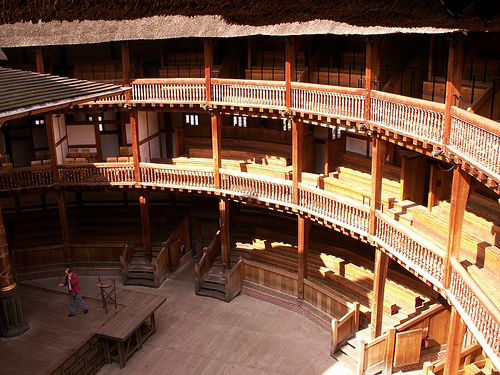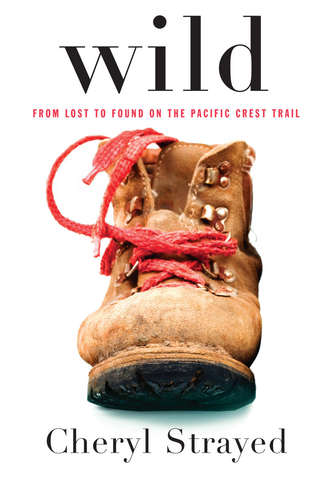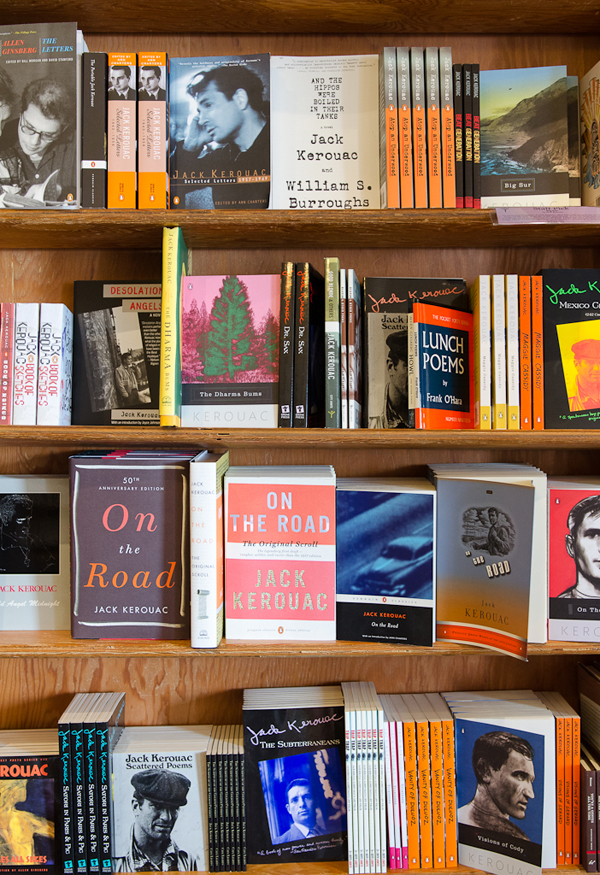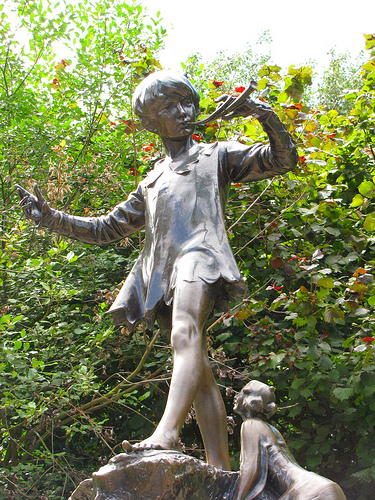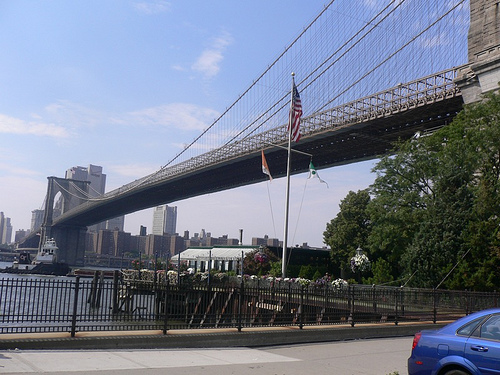 Take a peek “behind the article” as Literary Traveler talks with Michael Hartigan, the author of our July 23rd article, “I am Not an Original Groundling.” We had a few more questions for the writer concerning his love of Shakespeare, his advice for literary travelers taking a jaunt across the pond and his fascination with the Globe Theatre groundling experience.
Take a peek “behind the article” as Literary Traveler talks with Michael Hartigan, the author of our July 23rd article, “I am Not an Original Groundling.” We had a few more questions for the writer concerning his love of Shakespeare, his advice for literary travelers taking a jaunt across the pond and his fascination with the Globe Theatre groundling experience.
Literary Traveler: Have you always been an avid Shakespeare devotee? When did your enthusiasm for his works begin?
Michael Hartigan: When my high school English teacher had our class memorize Marc Antony’s, “Friends, Romans, Countrymen…” speech from Julius Caesar, I, unlike most of my classmates, was hooked. I was infatuated by Shakespeare’s devotion to the word and enjoyed peeling away the layers to reveal the complex themes, symbolism and humor laced throughout his works. I took my enthusiasm to college and as an English major, dove head first into the folios. I have Dr. Stephen Lynch, professor at Providence College, to thank for teaching me the finer points of the Bard. It all led to me writing my senior thesis about honor and gender roles in Shakespeare’s works.
LT: As you mention in your article Shakespeare wrote for the people, but other playwrights of the day such as Ben Jonson were not so accepting of the groundlings. Making a derogatory reference to them in one of his plays, Jonson refers to them as offering “popular applause / or foamy praise, that drops from common jaws.” What do you think accounted for these varying impressions of the groundlings?
MH: I think the groundlings may have been caught up in a little bit of class warfare. Going to the theater was an activity on the wrong side of the Thames, so to speak. Artists need to eat and perhaps some other playwrights of the day knew that they needed to lure in a different, wealthier, more aristocratic audience in order to keep their inkwells full.
LT: Can you share with us any more “behind the scenes Elizabethan gossip” or fun facts about the Globe Theatre that you learned either on your tour or elsewhere?
MH: The tour and our tour guide at the current incarnation of the Globe were both fantastic. Our guide was more than willing to share his extensive knowledge and did it with a flourish that only stage actors possess. One of the more interesting things I remember him mentioning was that Shakespeare himself was a shareholder in the original theater, which actually began its life across the Thames before being moved. And also that the fire that burned down the Globe was reportedly caused by a canon used during production of Henry VIII. I also enjoyed the story about how some of the more upper class patrons were allowed to sit onstage, at the rear. It didn’t provide for the best view, but perhaps it was necessary to stroke a few egos.
LT: Your wife seems to have taken one for the team by donning the period costume. If she asked you to reciprocate by dressing in the garb of one of Shakespeare’s characters, which would you choose? Tell us a little bit about your choice.
MH: I’ve always been partial to Iago from Othello, mainly because he is such a complex character. I’d be interested to see the wardrobe choice of an evil mastermind. If not him, it would of course be fun to wear a donkey head a la Bottom from A Midsummer Night’s Dream.
LT: Aside from the Globe Theatre, do you have any suggestions for Literary Travelers visiting London?
MH: It’s hard to go anywhere in London and not experience some historic or literarily significant person, place or thing. Everything is interconnected – someone did something great in one location, his or her portrait is hanging in a museum down the road and the person is buried across the river.
I would recommend a stop at Westminster Abbey (and not just because of Will & Kate). Some of literature’s heavy hitters and history’s great philosophical, musical and scientific minds are buried here. Standing in Poet’s Corner, there truly is a feeling of awe as you’re in the presence of Chaucer, Charles Dickens, Thomas Hardy, composer George Handel and so many more.
After a long day of running around London, I’d stop in for a pint at Ye Olde Mitre Tavern located in Ely Court. It’s almost hidden down tight alleys and definitely keeps with the traditional British Pub feel. It is on the grounds of what used to be Ely Palace. For the literary traveler, Shakespeare references the location in Richard II and Richard III, via his mentions of the Bishop of Ely and Ely Palace. There are quirky tales about this pub and some of the things in and around it (some legend and some fact).
LT: If you could take a time machine back to sixteenth century England and experience for yourself a play at the Globe Theatre, which play would you choose? Tell us about your choice.
MH: This is a tough question because I’d be happy seeing any. If I got to choose, I’d probably pick Macbeth. To watch such confident characters unravel onstage, played by the people Shakespeare originally intended, would be incredible. I’ve always been intrigued by how Shakespeare manipulated and exposed the flippancy of gender roles, all while using a totally male cast. It adds layers of complexity to any character, and Lady Macbeth is a perfect example. Besides, any story with conspiracy, murder and witches is something I want to watch.
LT: Given the opportunity, would you want the full groundling experience?
MH: Absolutely. It may not have been the most sanitary of ways to watch a play, but to have front row seats for the cheapest price is something you usually can’t get these days. Shakespeare wrote his plays to be performed in that kind of atmosphere. It would be refreshing and unique to experience it as it was originally intended, with the wall between stage and audience broken down.
LT: Thank you for taking the time to speak with us, and we agree that lax hygiene is a small price to pay for the up close and personal experience of literary greatness!

